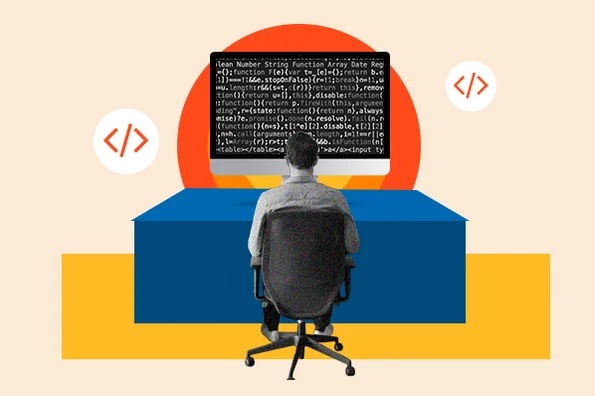Table of Contents
Introduction:
Coding is getting cheaper as advances in technology, automation, and artificial intelligence reshape the software development industry. Accessible tools, frameworks, and low-code platforms are driving down the cost of coding—both in terms of resources and labor costs. As coding becomes more affordable, the industry faces new challenges and opportunities for both developers and businesses. In this blog, we will explore why coding costs are declining, the distinction between coding and programming, and how these shifts are affecting the future of the software development workforce.

Which Is Harder: Programming or Coding?
One common misconception is that coding and programming are the same. In reality, these two terms refer to different stages of the software development process. But which one is harder?
Coding refers to the act of writing code in a specific language, following the rules and syntax. It’s often considered the foundational level of software development. Coders translate logical instructions into a language that machines understand, like Python, JavaScript, or C++.
Programming goes beyond coding. It involves creating the architecture of a solution, debugging issues, and thinking logically to implement complex systems. Programming encompasses the full problem-solving process, from conceptualizing an idea to delivering a fully functioning software product.
Difficulty Comparison:
- Coding is usually more accessible to beginners. Learning syntax and solving smaller, individual problems can be done relatively quickly.
- Programming demands a broader understanding of system architecture, problem-solving, and software design principles. It is more intellectually challenging and requires experience in managing larger projects and working with complex algorithms.

What’s the Difference Between Programming and Coding?
At first glance, the terms programming and coding may seem interchangeable. However, understanding the nuances between the two is essential, especially as technology evolves.
- Definition:
- Coding: The act of writing instructions in a language that a machine can understand. Coders typically focus on implementing specific features or functions.
- Programming: A broader discipline that includes coding, but also entails designing algorithms, testing, debugging, and maintaining the overall software system.
- Scope:
- Coders focus on writing the code that makes up the application’s basic functionality.
- Programmers need to think about the entire system, from architecture to performance optimization.
- Complexity:
- Coding can be as simple as writing a few lines of code for a small task.
- Programming involves managing the interaction of various pieces of code, solving architectural problems, and maintaining a clear overview of how different components fit together.

Why Coding Is Getting Cheaper
The cost of coding has been steadily decreasing due to several factors:
- Automation and AI Tools: Modern artificial intelligence and automation tools, such as GitHub Copilot and ChatGPT, can help developers write code faster and more efficiently. These tools allow even non-developers to create basic scripts or code snippets, which lowers the entry barrier for coding tasks.
- Low-Code/No-Code Platforms: Platforms like Wix, Bubble, and Webflow enable users to build functional websites and apps without extensive coding knowledge. These tools provide drag-and-drop features, making it easy to create software solutions with minimal coding.
- Globalization and Outsourcing: As more coders enter the workforce from different parts of the world, the competition among them increases, leading to reduced labor costs. Countries with lower labor costs often become hubs for outsourced coding tasks, making coding services more affordable for businesses globally.
- Open-Source Resources: The availability of open-source libraries and frameworks has significantly lowered the cost of software development. Coders and programmers no longer have to build every component from scratch, enabling faster project completion and reduced development costs.
Are Coders Becoming Less Valuable?
Despite the decreasing costs of coding, skilled coders and programmers are still highly valuable. Here’s why:
- Demand for Customization: While low-code and no-code platforms can build simple applications, businesses still require customized, complex software solutions that can’t be created with pre-built tools. This means that experienced coders and programmers are still essential for more sophisticated projects.
- Innovation: Skilled programmers bring creativity and innovation to the table. Automated tools and cheap coding labor can’t replace the problem-solving abilities of talented developers who can think outside the box.
- Security Concerns: With the rise of cyber threats, businesses need coders who can write secure, reliable code. Cheap, poorly written code can lead to vulnerabilities, putting companies at risk.

Use Case Studies:
- The Rise of Low-Code Solutions in Startups: A small e-commerce startup, for example, might use a no-code platform to set up its online store quickly and affordably. Instead of hiring expensive coders, they rely on tools like Shopify or WooCommerce to handle most of the technical aspects. This enables them to launch rapidly without a significant investment in technical expertise.
- Large Enterprises Leveraging Open-Source Frameworks: Larger enterprises such as Google or Microsoft, while employing highly skilled programmers, also benefit from the vast array of open-source resources available. For instance, using TensorFlow for machine learning applications reduces the need to write machine learning algorithms from scratch, cutting down on coding hours and labor costs.
- AI-Assisted Development in Agencies: Web development agencies are starting to use AI-assisted tools like GitHub Copilot to accelerate code writing and debugging processes. This shift allows them to lower the cost of services for clients, while maintaining the high quality of code. This, in turn, has impacted coding rates in the industry, making it more affordable for smaller businesses to access development services.
Conclusion:
The cost of coding is dropping due to advances in technology and the rise of automation, low-code platforms, and global competition. While coding is becoming more accessible and affordable, experienced programmers remain essential to creating innovative, secure, and customized solutions. The future of coding lies in balancing automation with human ingenuity, ensuring that while coders may be getting cheaper, the role of skilled programmers continues to thrive.